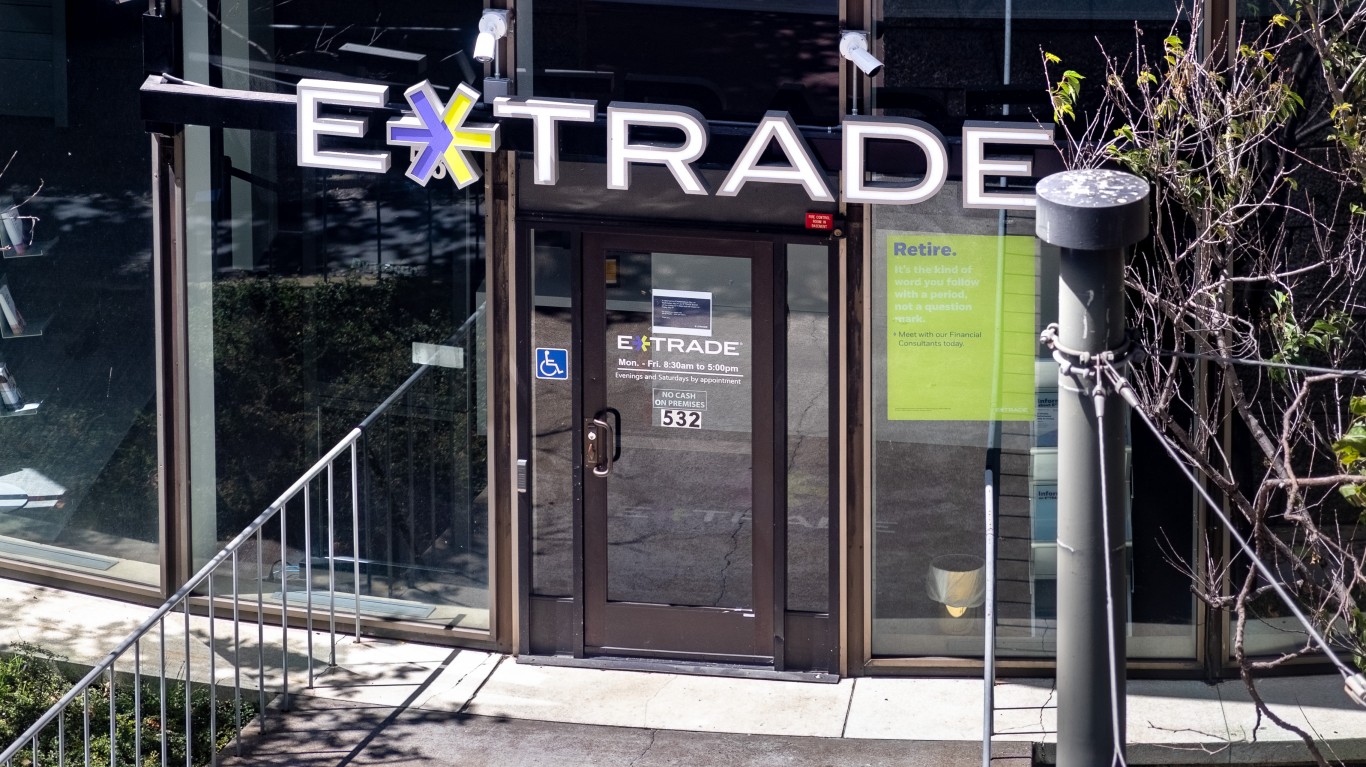

Deutsche Bank A.G. (NYSE: DB) is not really considered by most investors as an American bank, so most U.S. investors would be likely to shrug off any negative news affecting one of the prides and joys of Germany. The problem with dismissing the importance and outright concerns about Deutsche Bank is that the bank does quite a bit of institutional business and trading in the United States, and it has many U.S. banks which are more than casual counter-parties which trade with Deutsche Bank.
The latest round of rumor mill activity, and there have been more rumors over the last few years than can easily be counted, is that Deutsche Bank is exploring the possibility of lowering its capital cushion in an effort to help finance any restructuring. Bloomberg has two stories which might bring Deutsche Bank front and center. The more popular story may be about empty offices and early drinking, but the more important story, which is not just about the New York offices, is that Deutsche Bank has spoken with regulators in Germany and with the European Central Bank about lowering the floor for its common equity tier 1 capital ratio.
What this move would do would allow normal operations and a lack of additional regulatory and statutory concerns if and after Deutsche Bank pursues additional capital. In short, it would ease some future lender and creditor concerns about how regulators might act if Deutsche Bank’s capital ratios were to dip under current floors.
It turns out that there is already some rivalry commentary out there calling for a sound strategy requiring a capital injection and that lowering its exposure to financial markets operation would be a decisive step. That is the view of Andrew Stimpson and Alastair Ryan, the U.K. and European banking analyst team for Merrill Lynch. While their view talks about what might help, their rating is “Underperform” and their €5.0 price objective implies more than 25% downside on Deutsche Bank’s common shares.
Of all the rumors, the capital ratio lowering is perhaps the biggest because if there are problems elsewhere in Europe then other institutions might ask for the same relaxation of rules and that could pose systemic risk not seen since the aftermath of the great recession. Another rumor, which is generally more expectation that rumor at this point, is that a “bad bank” would be created where Deutsche Bank shaves off parts of its capital markets and riskier assets into a new company.
The good news is that Deutsche Bank still appears to be handily above the 11.8% minimum capital ratio at the present time. That ratio is the dividing lines over regulatory restrictions on bonuses, dividends, and future shareholder capital returns.
Another issue to consider is that Deutsche Bank has claimed to not have massive derivative exposure on its own. Not at current levels. But if capital ratios change, it can create counter-party risks in that higher risk reserve scenarios may be applied (or even required) to contracts where Deutsche Bank is on the other side of a transaction.
Regardless of what may come down the pipe, there is still much more long-term risk for Deutsche Bank than most other large financial institutions that U.S. banks deal with routinely. In 2018, the U.S. Federal Reserve’s CCAR (stress test) did not object to Deutsche Bank’s capital plan on a quantitative basis but it did object for qualitative reasons. And in 2019: The U.S. Federal Reserve did not object to the capital plan of DBUSA on either a quantitative or qualitative basis. That post-CCAR statement by Deutsche Bank said:
DBUSA is Deutsche Bank AG’s principal US intermediate holding company (IHC) and had $133 billion in assets as of March 31, 2019. DBUSA represents approximately 8% of the assets of Deutsche Bank AG and 36% of the assets of the combined US operations of Deutsche Bank AG.
It remains too early to speculate about what regulators in Europe might be willing to consider versus reality. It’s one thing to make an exception in a vacuum. It’s another thing to set precedent when other banks in the future might need some regulatory “help” as well.
Deutsche Bank’s American depositary shares traded in New York were flat at $7.63 on Monday, but the 52-week range of $6.61 to $13.17 should outline how this story has gone. Those shares started out 2018 above $18 and they were $35.00 in mid-2015. Investors with long-term views might not want to consider how Deutsche Bank was compared with now on a relative basis from before, during and even after the great recession.
Essential Tips for Investing: Sponsored
A financial advisor can help you understand the advantages and disadvantages of investment properties. Finding a qualified financial advisor doesn’t have to be hard. SmartAsset’s free tool matches you with up to three financial advisors who serve your area, and you can interview your advisor matches at no cost to decide which one is right for you. If you’re ready to find an advisor who can help you achieve your financial goals, get started now.
Investing in real estate can diversify your portfolio. But expanding your horizons may add additional costs. If you’re an investor looking to minimize expenses, consider checking out online brokerages. They often offer low investment fees, helping you maximize your profit.
Thank you for reading! Have some feedback for us?
Contact the 24/7 Wall St. editorial team.



